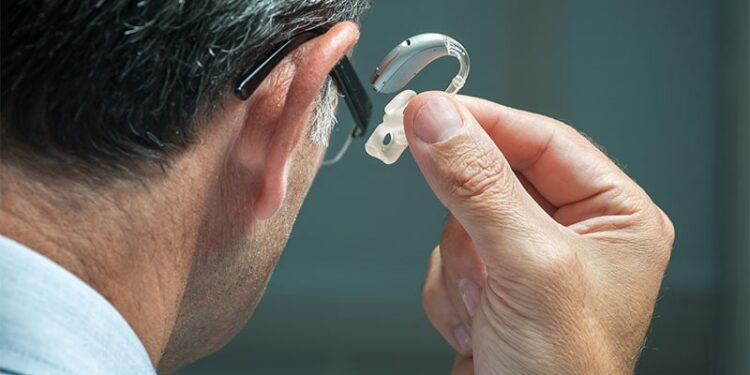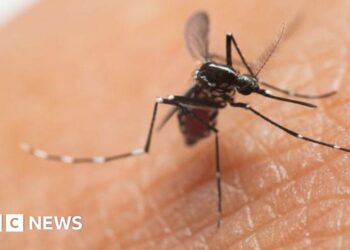Hearing aid use was linked to fewer neuropsychiatric symptoms (NPS) in patients with dementia, such as apathy and irritability, than nonuse, new research showed.
In a cross-sectional cohort study of more than 10,000 participants, hearing loss was not associated with a significantly greater number of symptoms than no hearing loss. However, the use of hearing aids in individuals with both dementia and hearing loss was linked to significantly fewer and less severe NPS than nonuse.
“Hearing aid use may represent an underutilized, nonpharmacological intervention to address NPS,” lead study author Ahjeetha Shankar, Johns Hopkins University School of Medicine, Baltimore, and colleagues wrote.
“This study emphasizes the importance of continuing to explore the importance of identifying and addressing hearing loss in a rigorous fashion” in patients living with dementia, they added.
The findings were published online on August 5 in The American Journal of Geriatric Psychiatry.
Potential Relationships
More than 90% of individuals with dementia also have hearing loss, and between 61% and 97% of those have NPS, which is tied to dementia severity, the investigators wrote.
Although nonpharmacologic interventions are recommended as first-line treatment for NPS, they can be a challenge to administer, the researchers noted.
Previous studies have shown a link between sensory impairments and NPS. As reported last year by Medscape Medical News, other studies have shown an association between the use of hearing aids and a slowing of cognitive decline.
For the current study, the researchers sought to explore the potential relationship between hearing loss, hearing aids, and NPS in a large cohort.
They assessed cross sectional data from the National Alzheimer’s Coordinating Center’s Uniform Data Set for 10,054 individuals with dementia (mean age, 75 years; 51% women; 78% White individuals; 11% Black individuals).
Those with self-reported hearing loss — nearly one quarter (24%) of the entire cohort — had a mean total of 3.3 NPS and a mean NPS severity score of 5.1 on the Neuropsychiatric Inventory Questionnaire (NPI-Q).
The 12 NPS assessed on the NPI-Q were delusions, hallucinations, agitation/aggression, dysphoria/depression, anxiety, euphoria/elation, apathy/indifference, disinhibition, irritability/lability, aberrant motor behaviors, night-time behavioral disturbances, and appetite/eating disturbances.
Among the participants with hearing loss, 54.8% reported using hearing aids.
Optimizing Sensory Health
Results showed that the group with hearing loss had a similar number of NPS compared with the group without hearing loss (3.3 vs 3.4).
Apathy (43.5% vs 45%) and irritability (40% vs 41%) were the most common NPS reported, whereas hallucinations (9.6% vs 9%) and elation (5.8% vs 5.5%) were the least common.
There was no significant link between hearing loss and a greater number of NPS (predicted prevalence difference [PPD], 0.09) or more severe NPS (PPD, 0.25) in the fully adjusted models.
However, the use of hearing aids was associated with fewer NPS (PPD, -0.71) and less severe NPS (PPD, -1.79) compared with nonuse in fully adjusted models (P < .001 for both).
“Our null finding related to the association between functional hearing loss and NPS contrasts existing literature,” the investigators wrote. They added that this could be due to underreporting of the problem, which can lead to the misclassification of hearing loss.
On the other hand, the finding of hearing aids’ benefits “highlights the potential role of optimizing sensory health in the management of NPS,” the researchers wrote.
This study was funded in part by the National Institute on Aging, the Richman Family Precision Medicine Center of Excellence in Alzheimer’s Disease, and the Sarah Miller Coulson Human Aging Project. One investigator reported being a volunteer member of the nonprofit boards of the Hearing Loss Association of America and Access HEARS.
The other researchers reported no relevant financial relationships.
Source link : https://www.medscape.com/viewarticle/fewer-dementia-neuropsychiatric-symptoms-hearing-aids-2025a1000les?src=rss
Author :
Publish date : 2025-08-13 09:39:00
Copyright for syndicated content belongs to the linked Source.














